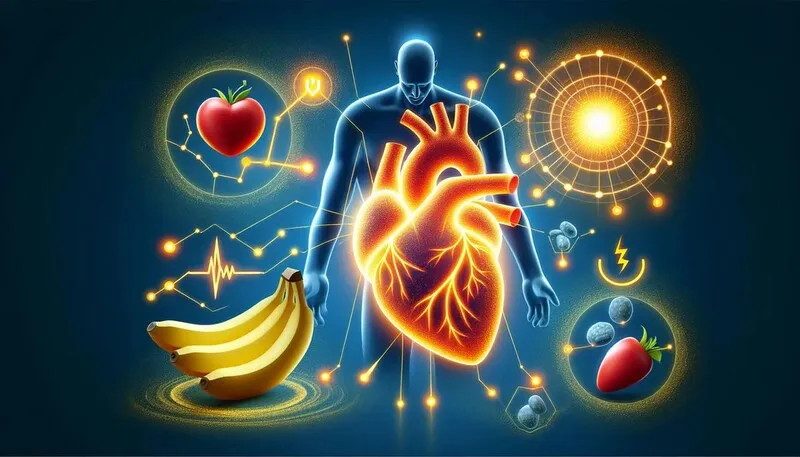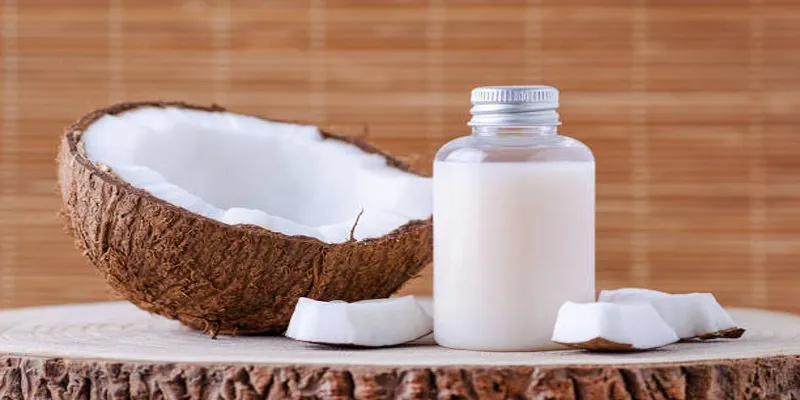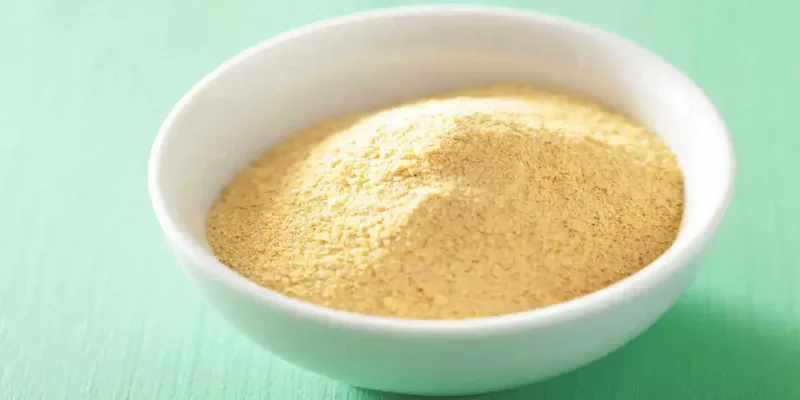The Power of Potassium: Why You Need This Essential Mineral
**
**Potassium is a vital mineral that plays an essential role in various bodily
functions. Although often overlooked, it influences everything from muscle
function to heart health. As an electrolyte, potassium helps regulate fluid
balance, nerve signals, and muscle contractions. A deficiency in potassium can
disrupt crucial bodily functions and lead to health issues. This article will
explore the benefits of potassium, its importance for overall health, and how
to incorporate more potassium-rich foods into your diet.
How Potassium Supports Cardiovascular Health

Potassium is well-known for its positive impact on heart health. It plays a crucial role in managing blood pressure by balancing the effects of sodium in the body. High sodium levels can lead to water retention, increasing blood pressure and putting additional stress on the heart. Sufficient potassium intake helps counteract these effects, promoting normal blood pressure regulation. Research shows that individuals who consume more potassium tend to have lower blood pressure levels, reducing the risk of heart attacks and strokes. This essential mineral supports the entire cardiovascular system, making it a vital component of a heart-healthy diet.
- Heart Attack Prevention: Regular potassium intake is linked to a 27% lower risk of heart disease.
- Blood Pressure Control: Adequate potassium levels help reduce hypertension, especially in sodium-sensitive individuals.
Potassium’s Role in Muscle Function and Recovery
Potassium is critical for muscle function, particularly during physical activities. It helps maintain the proper balance of fluids inside and outside cells, ensuring efficient muscle contractions and relaxations. A potassium deficiency can lead to muscle weakness or cramps and, in severe cases, paralysis. Athletes and those frequently engaging in physical activities require higher potassium levels to support optimal muscle performance and faster recovery. Adequate potassium intake can also reduce the risk of exercise-induced muscle cramps, making it essential for those aiming to enhance performance and recovery.
- Exercise Fatigue: Low potassium levels may lead to quicker onset of fatigue during workouts.
- Muscle Maintenance: Adequate potassium intake supports muscle preservation, especially in aging adults.
How Potassium Balances Fluids and Electrolytes
As an electrolyte, potassium is vital for maintaining fluid balance in the body. Electrolytes like potassium ensure that fluids move in and out of cells, preventing dehydration and supporting cellular functions. An imbalance in potassium levels can lead to dehydration or fluid imbalance, causing symptoms like fatigue, headaches, and dizziness. Potassium works with other electrolytes, such as sodium and chloride, to maintain the body’s fluid balance. This is particularly important for individuals living in hot climates, engaging in intense workouts, or with health conditions affecting fluid levels. Ensuring adequate potassium intake helps keep the body properly hydrated.
- Hydration Importance: Potassium helps prevent dehydration, especially in physically active individuals.
- Heat Sensitivity: People living in hot climates may need to increase their potassium intake to prevent heat-induced dehydration.
The Impact of Potassium on Bone Health
While potassium is often associated with heart and muscle health, it also contributes to maintaining strong bones. It helps neutralize acids in the body that can harm bones if not properly managed. Consuming acidic foods such as meat or dairy can lead to calcium being drawn from bones to combat acidity. However, eating potassium-rich foods helps maintain bone density and strength. Studies confirm that individuals with adequate potassium intake have a reduced risk of developing osteoporosis as they age. Therefore, potassium is not only crucial for immediate health but also for long-term bone strength.
- Osteoporosis Risk: Studies show a 12% reduction in osteoporosis risk with higher potassium intake.
- Bone Density: Potassium helps maintain bone density by reducing calcium loss in urine.
Potassium and Its Effects on Nerve Function
Potassium is essential for proper nerve function, alongside its importance for heart and muscle operations. It aids in conducting nerve messages crucial for relaying signals from the brain to other body parts. Nerve cells rely on a balanced potassium and sodium level to transmit electrical signals effectively. Low potassium levels can negatively affect nerve function, potentially leading to sensations like tingling or numbness and, in severe cases, nerve damage. Consuming a potassium-rich diet ensures optimal nervous system function, enhancing communication between the brain and body.
- Neurological Impact: Low potassium can cause issues like muscle twitching and paralysis in extreme cases.
- Cognitive Health: Potassium aids cognitive function by facilitating communication between neurons.
Incorporating Potassium-Rich Foods into Your Diet

Despite its importance, many people do not consume enough potassium. Fortunately, potassium is found in various foods, making it easy to incorporate into a balanced diet. Fruits such as bananas, oranges, and avocados are well-known potassium sources. Vegetables like spinach, potatoes, and sweet potatoes are also rich in potassium, making them excellent choices for those looking to increase potassium intake. Foods like legumes, nuts, seeds, and fish are also packed with this mineral. By regularly including these potassium-rich foods in your meals, you can easily meet your daily potassium needs and reap the numerous health benefits of adequate potassium levels.
- Supplement Caution: Potassium supplements should only be taken under medical supervision to avoid overdose.
- Cooking Tip: Boiling vegetables can reduce potassium levels; opt for steaming or roasting instead.
Conclusion
Potassium is crucial for numerous bodily functions, yet many people fall short of consuming adequate amounts of this essential mineral. Fortunately, potassium is readily available in a wide array of foods, making it simple to incorporate into a balanced diet. Fruits like bananas, oranges, and avocados are well-known sources of potassium. Vegetables such as spinach, potatoes, and sweet potatoes are rich in potassium, making them excellent dietary choices for those seeking to boost their potassium intake. Additionally, foods like legumes, nuts, seeds, and fish are abundant in this mineral. By consistently including these potassium-rich foods in your meals, you can effortlessly meet your body’s daily potassium requirements while enjoying the myriad health benefits of maintaining sufficient potassium levels.







